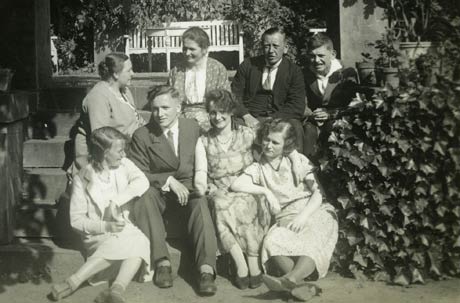Whats clear here is that director Kevin Macdonald is angry at two groups: the Nazis and the U.S. government. His argument claims that the Americans protected one of WWIIs most malevolent war criminals (Klaus Barbie), the subject of scrutiny in his newest hard-line documentary.
Tougher to tell, however, is Macdonalds set style, as the film veers from Yankee bashing to French glorification to a detailed rundown of the Third Reichs most wanted. Either way you look at it, My Enemys Enemy is vastly educational, akin to watching a History Channel piece on the horrors of the Cold War and the dirty men who benefited from behind the scenes. The director relies heavily on journalistic detail and an army of talking heads, including the likes of seasoned American Counter Intelligence officer Robert Taylor and famed German journalist Kai Hermann. Both men are featured predominantly, revealing the shocking truths and injustices that Barbie conducted during his underground reign.
The film declares at the outset (via Andre Dussoliers excellent narration) that it will depict how the shadowy Western powers that once were gave Barbie cartel havens in Europe and South America, where he schemed about creating a "Fourth Reich in Latin America. For those history buffs that know of Barbies life, this spin is much more fantastical, portraying the man as evil as possible, (a known ally with 60s and post-60s global terrorists).
We see Barbie grow from a benign German boy who undergoes extreme torture and fascist-oriented Nazi training to his rise as a South American tyrant. For most viewers, however, Enemy offers a vivid lesson on the difficulties good men often face in bringing their human monsters to justice and the tribulations democracies encounter when two policies (in this case, capturing Nazi murderers and battling communism) come into conflict.
As for Macdonalds rhetoric, he does superbly juxtapose some emotional testimonies from a slew of Barbies victims, like the moving tale of Barbies fatal torture of legendary French resistance leader Jean Moulin and the chilling denials from Barbies surviving daughter, Ute Messner, who is the only one to insist that her father was "a kind and peaceful man.
(Alliance Atlantis)Tougher to tell, however, is Macdonalds set style, as the film veers from Yankee bashing to French glorification to a detailed rundown of the Third Reichs most wanted. Either way you look at it, My Enemys Enemy is vastly educational, akin to watching a History Channel piece on the horrors of the Cold War and the dirty men who benefited from behind the scenes. The director relies heavily on journalistic detail and an army of talking heads, including the likes of seasoned American Counter Intelligence officer Robert Taylor and famed German journalist Kai Hermann. Both men are featured predominantly, revealing the shocking truths and injustices that Barbie conducted during his underground reign.
The film declares at the outset (via Andre Dussoliers excellent narration) that it will depict how the shadowy Western powers that once were gave Barbie cartel havens in Europe and South America, where he schemed about creating a "Fourth Reich in Latin America. For those history buffs that know of Barbies life, this spin is much more fantastical, portraying the man as evil as possible, (a known ally with 60s and post-60s global terrorists).
We see Barbie grow from a benign German boy who undergoes extreme torture and fascist-oriented Nazi training to his rise as a South American tyrant. For most viewers, however, Enemy offers a vivid lesson on the difficulties good men often face in bringing their human monsters to justice and the tribulations democracies encounter when two policies (in this case, capturing Nazi murderers and battling communism) come into conflict.
As for Macdonalds rhetoric, he does superbly juxtapose some emotional testimonies from a slew of Barbies victims, like the moving tale of Barbies fatal torture of legendary French resistance leader Jean Moulin and the chilling denials from Barbies surviving daughter, Ute Messner, who is the only one to insist that her father was "a kind and peaceful man.
